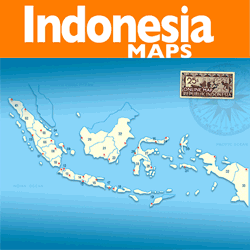Mansorandak Tradition
Papua, the largest island in Indonesia which is located at the easternmost part of the archipelago, is rich in natural resources. Papua is not only famous for its unique birds of paradise or its beautiful tourist objects such as Raja Ampat, Wasur National Park which is dominated by savanna, and Lorentz National Park, which contains many native plants, animals, and also the culture which is the largest in Southeast Asia.
Papua, which is the second largest island in the world (after Greenland Island in Denmark), also has hundreds of tribes with more than two hundred regional languages. These tribes include the Asmat, Amungme, Huli, Bauzi, Muyu, Korowai, Dani, and many more.
In addition, there are also unique traditions typical of the Papuan people. One of them is the tradition of stepping on a plate or commonly called Mansorandak. Mansorandak is a welcoming ceremony for someone who goes and returns from a place he has just visited, or someone who is setting foot in a new place for the first time.
Mansorandak is a tradition passed down from generation to generation by the Biak tribe in Doreri Bay, Manokwari, West Papua to welcome family members who have just returned from overseas lands for quite a long time. Through this tradition, the Doreri people express their gratitude and joy for the return of their family members and for cleaning them from evil spirits that they might get on overseas lands.
The Doreri people believe that this tradition is an expression of gratitude for having come a long journey. No wonder this reception is truly extraordinary and of course stepping on the plate. This tradition is also believed to drive away evil spirits who have come together since long trips so that it needs to be cleaned through the Mansorandak tradition.
The mansorandak tradition begins with bathing flowers procession in various forms on traditional plates. Furthermore, the nomads will enter a special room in the house together with their extended family and have to go around nine traditional plates nine times.
The number nine represents the nine clans of Doreri tribe in Manokwari. This procession ends with the trampling of a crocodile replica as a symbol of the challenges, suffering and trials of life that will accompany the nomads' life path. This mansorandak procession ends with a group meal.
In this procession, all the main foods such as meat, fish, betel and areca nut will be hung at the top of the house and can only be eaten after receiving a signal from the Doreri traditional elders. Over time, the Mansorandak tradition in Manokwari is now only practiced by pouring water on the nomads. This watering is done before entering the house without circling traditional plates and eating together.
At important events such as welcoming state guests who come to Manokwari, the tradition of stepping on the plate is still carried out symbolically. This tradition is carried out by asking guests to step on traditional plates. This was done as a sign of gratitude for the people of Manokwari for guests.










